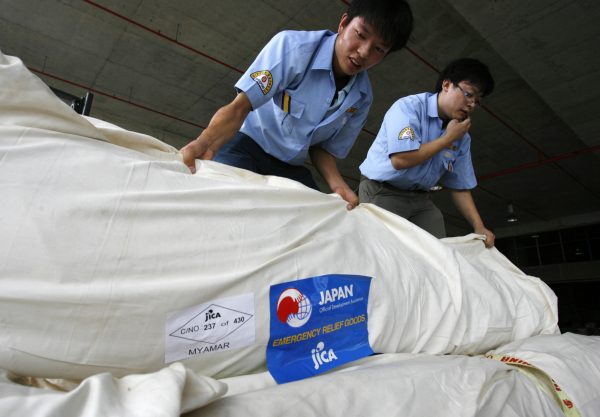The most popular form of Japanese ODA is project-based technical cooperation in developing countries. In fiscal year 2020, Japan ODA budget is approximately 561 billion yen (US$5.4 billion). This consists of 514 billion yen (US$4.9 billion) in endowments and 47 billion yen (US$0.5 billion) in yen loans. Endowments consist of bilateral aid (91.7 per cent) and multilateral aid (8.3 per cent) through contributions to international organisations like the United Nations. Bilateral aid predominantly comprises of technical cooperation (60.8 per cent) and economic development assistance (grant aid) (38.9 per cent) and mostly falls within the jurisdiction of the Ministry of Foreign Affairs of Japan.
Technical cooperation projects are managed by JICA and implemented by private consultancy firms and individual consultants. Experts are repeatedly dispatched to beneficiary countries for short-term periods to implement activities, coordinate with national staff and counterparts, and monitor progress.
Remote implementation of the projects is new for a majority of Japan’s ODA projects and creates a number of challenges. Distance between Japan and project countries impedes communication among stakeholders including experts, national staff, local recipients and authorities. Many countries are changing COVID-19 restrictions day-by-day, hindering aid delivery. Projects must also value the safety of national staff in project countries and consider preventive measures like teleworking. ODA’s public nature also demands that projects strictly follow the restrictions in project countries and go through the laborious approval processes for arranging activities both in Japan and project countries.
Although JICA proudly claimed in its 2019 annual report that assistance went to 148 countries and regions in fiscal year 2018, the national budget for ODA has been almost halved over the past twenty years since the 1990s. According to a Cabinet Office survey, the top reasons for the Japanese public to support the promotion of ODA are to ‘[secure] the stable provision of energy resources’ (50.8 per cent) and to ‘establish trust in the international community’ (46.7 per cent). A tacit assumption here is that the grants are future investments in good economic relations with recipient countries. With COVID-19 severely hitting Japan’s economy, this critical trend will likely continue.
The effectiveness and flexibility of Japanese ODA is being tested by the pandemic. Administratively, JICA is attempting to cope with these issues by signing extended contracts on the projects delayed and encouraging experts to implement local project activities remotely. This virtual replacement includes activities ranging from training provided to local beneficiaries to high-level committees with counterpart officials. Practically, this change highlights the importance of mutual trust and commitment from stakeholders. For instance, online meetings with the stakeholders in project countries can be easily interrupted by poor network conditions, especially in rural areas, and thus the participants must patiently communicate with each other.
Those projects that have adapted best to such changes have taken advantage of partnerships that were well developed before the outbreak. ODA is by definition intergovernmental and uniquely able to establish strong connections with a diverse range of stakeholders at different levels. For example, recipient local farmers requested that the Northern Uganda Farmers’ Livelihood Improvement Project to find a way to safely resume training in June 2020. The project experts and Ugandan officials agreed on a tailor-made set of guidelines on COVID-19 preventive measures such as limiting the number of participants, providing face masks and physical distancing. Observing the guidelines, the training was entrusted to national staff and resumed in July with monitoring by project experts in Japan through a weekly online meeting.
The 2015 Cabinet Decision on the Development Cooperation Charter, a foundational framework for Japan’s ODA policy, declared that development cooperation stands on people-centred basics: to contribute to global peace and prosperity, to promote human security and to support the project country’s ownership through dialogue with diverse actors. While the pandemic has radically transformed the implementation of Japanese ODA, the changes do not represent a paradigm shift in philosophy. The basics of partnerships with project stakeholders are becoming all the more important for the successful delivery of assistance during the pandemic.
Yusaku Yoshikawa is an aid consultant at JIN Corporation, engaged in Japanese ODA projects in Africa.
This article is part of an EAF special feature series on the novel coronavirus crisis and its impact.
All views expressed in this article are the author’s own and do not necessarily reflect those of any affiliation or institution.

